


The Southern African Settlement Support Centre has provided training on the application processes for the IAS Scholarship aimed at equipping candidates with essential strategies to navigate the scholarship application process. The training was attended by 33 participants.
The training titled Unlocking Success: How to Write Winning Scholarship Applications took place on December 15, 2024. The major focus of this meeting was equipping the participants with ways to make their application appealing while trying to apply for the IAS 2025 Scholarship.
In her introductory remarks, Shumba said the purpose of the session ‘’was to make the application process for IAS scholarships simpler and to equip participants with the ability to make compelling applications.’’
She said she was excited to bring participants together to connect, learn, and enhance their opportunities through the IAS scholarships.
Shumba also acknowledged the support of the co-host, Nester Tom, Volunteer Coordinator at the Toronto People with AIDS Foundation.
She mentioned that the workshop aimed at unbundling the complication around the scholarship process to well-equip the participant and said such opportunities should be seized. Susan invited active participation and requested using the session for the development of stronger applications.
The event was moderated by Olaoluwoposi Oguntala, a medical student at the University of Ibadan and a co-founder of the Health Market.
He explained that he was there to ensure that the discussion flowed well and that participants derived as much as possible from the event.
Oguntala introduced the speakers, citing their areas of expertise and their contributions to HIV advocacy and education.
Dr. Mercy Majachani, a holder of a PhD in Data Science and currently Executive Director for Southern African Settlement Support Centre, took the first presentation.
She led the participants in a step-by-step completion of the IAS Scholarship application process to address key elements like personal details, organizational information, and financial support.
Dr. Majachani reminded participants to be keen with accuracy in their personal information and clarity in the description of organizational contributions they are making to the HIV response.
She added that the applicants must elaborate more on HIV-related experiences, showing milestones and contributions.
This, she said, is a space whereby candidates can express their motivation and long-term vision of attending the IAS 2025 Conference for community benefit. She insisted that the application demonstrates evidence of leadership, advocacy, and measurable impact in the field of HIV.
Practical tips for writing winning scholarship applications were given by Grace Chabuka, an HIV and Sexual and Reproductive Health specialist at SASSC. Chabuka urged the participants to relate their experiences to the objectives of the conference and give specific examples of their work in advocacy. She said that applicants should show how they would utilize the knowledge acquired from the conference to contribute to their communities.
Chabuka also encouraged applicants to include personal stories where applicable, especially for those living with HIV, as a way to show their resilience and commitment to the cause.
She called on participants to emphasize their role in leading the community, building networks, and collaborating with marginalized groups, such as sex workers and sexual minorities.
Oguntala then took the participants through the question-and-answer session, where they asked about the filling of the letter of recommendation and what financial support needed to be reflected on the application.
In response to one question, Dr. Majachani reiterated the importance of securing a well-written letter of recommendation that clearly expresses support for your case and matches the goals which the scholarship is trying to achieve.
In conclusion, Shumba thanked the resource persons and all participants who had engaged animatedly. She said that the session was indeed informative and empowering, equipping the attendees with the necessary knowledge to pursue IAS scholarships.
Shumba also took the opportunity to thank the partner organizations that partnered in the event: YAIN Trust, Health Market Nigeria, and other regional and international partners.
She concluded by encouraging the participants to put into practice what they learned and wished them success in their future endeavors.
The training session emphasized SASSC’s commitment to the development of leadership, advocacy, and community strengthening in the HIV response. In fact, one of the participants said during the question-and-answer session that from the insights gained within the session, the application process had been demystified, hence giving confidence to apply for the scholarship.
Focusing on the strategies that unlock success through compelling applications, the event provided a great avenue for aspiring scholarship recipients to enhance their prospects at making meaningful contributions to their communities.

